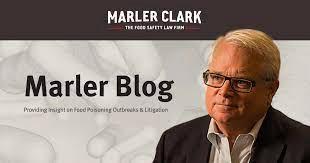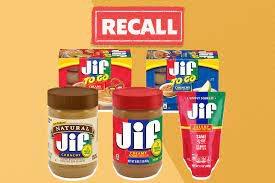 In a May 26th posting on Food Safety News, Attorney William Marler advocated for transparency concerning the number of cases and the results of plant inspection reports conducted by the FDA on the outbreak of Salmonella Sentftenberg attributed to peanut butter. To date 16 confirmed cases have been diagnosed in 12 states but as with many foodborne Salmonella infections, the actual number of those infected exceeds documented cases. It has been calculated by the Centers for Disease Control that 40 times as many cases of salmonellosis actually occur compared to stool-cultured confirmation of infections.
In a May 26th posting on Food Safety News, Attorney William Marler advocated for transparency concerning the number of cases and the results of plant inspection reports conducted by the FDA on the outbreak of Salmonella Sentftenberg attributed to peanut butter. To date 16 confirmed cases have been diagnosed in 12 states but as with many foodborne Salmonella infections, the actual number of those infected exceeds documented cases. It has been calculated by the Centers for Disease Control that 40 times as many cases of salmonellosis actually occur compared to stool-cultured confirmation of infections.
Attorney Marler has justifiably requested:
- That the FDA or the J.M. Smucker Company release inspection reports for the Jif plant extending from 2010 onwards.
- Additional information is requested on the relationship among Salmonella isolates from patients and within the public database to establish any possible epidemiologic relationships based on whole genome sequencing.
 Since the incriminated peanut butter was used as an ingredient the presence of the contaminant has triggered a wide range of secondary recalls of processed food products in the U.S., Canada and even in the E.U.
Since the incriminated peanut butter was used as an ingredient the presence of the contaminant has triggered a wide range of secondary recalls of processed food products in the U.S., Canada and even in the E.U.
The involvement of the Marler Clark law firm in this outbreak portends any future case of Salmonellosis associated with eggs or other poultry products. The law firm is experienced in eliciting information and data from reluctant federal agencies and non-cooperative manufacturers. Disclosure of relevant information should be expected in any multi-state foodborne disease outbreak irrespective of concern over legal action. In an attempt to obstruct possible claims of negligence, manufacturers frequently cite proprietary considerations or patient confidentiality as justifications to avoid release of data required for epidemiologic investigation of food-borne disease outbreaks.